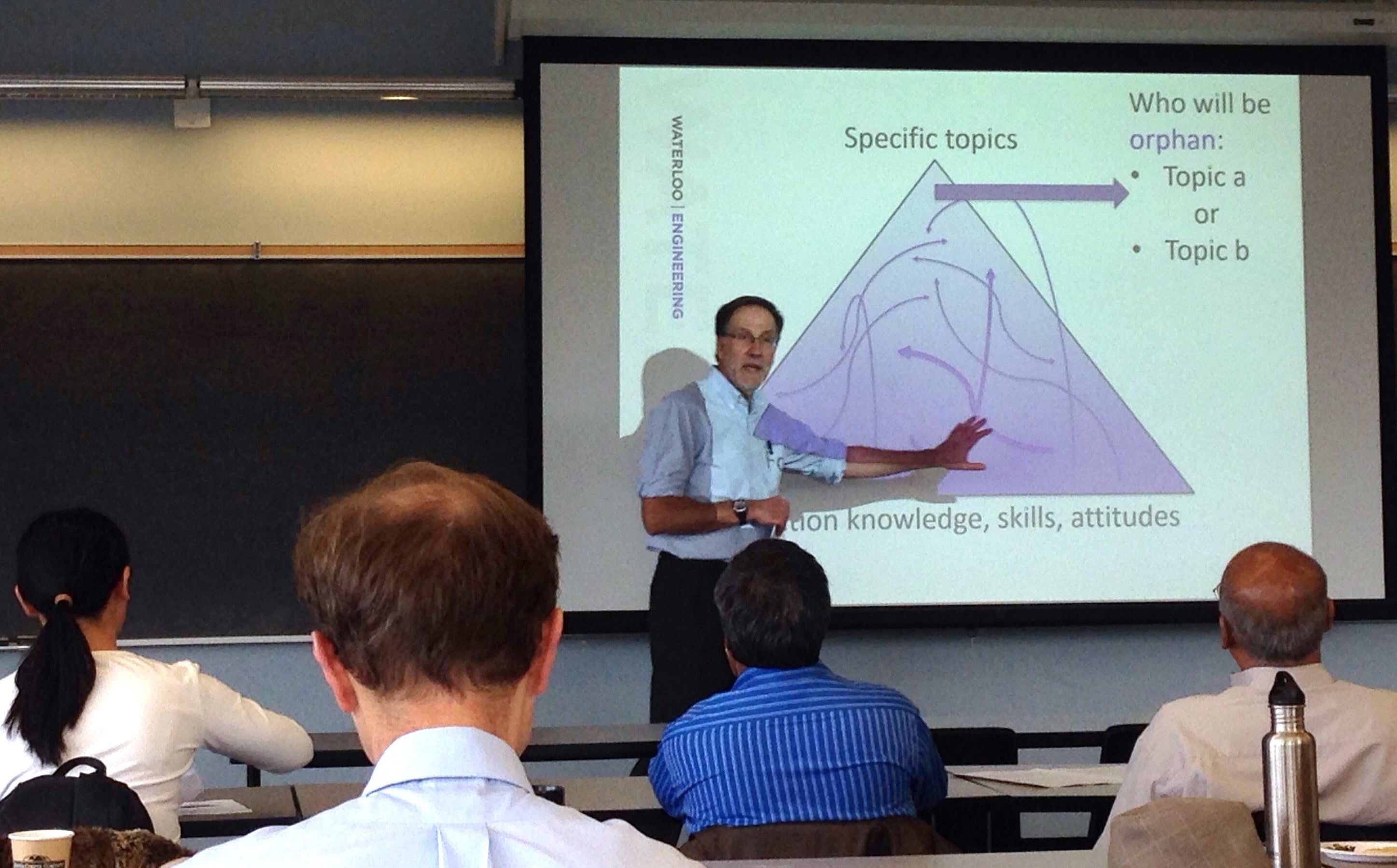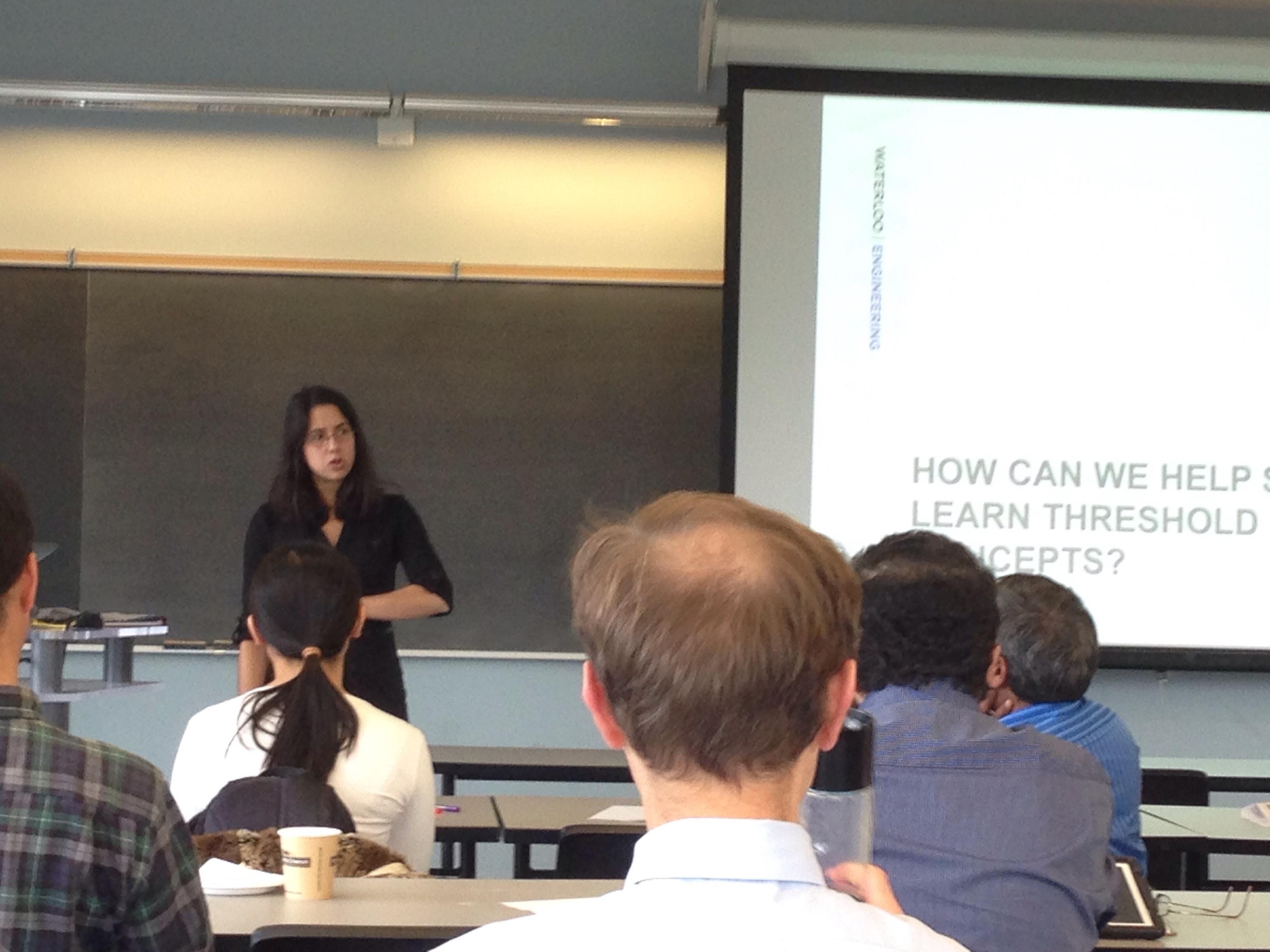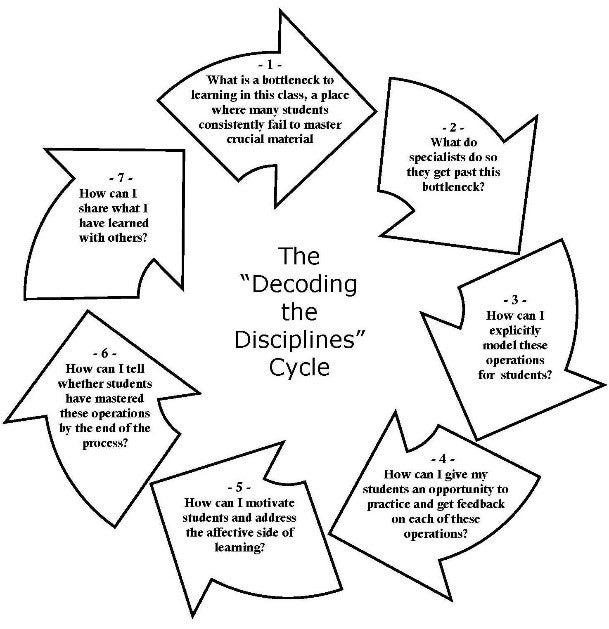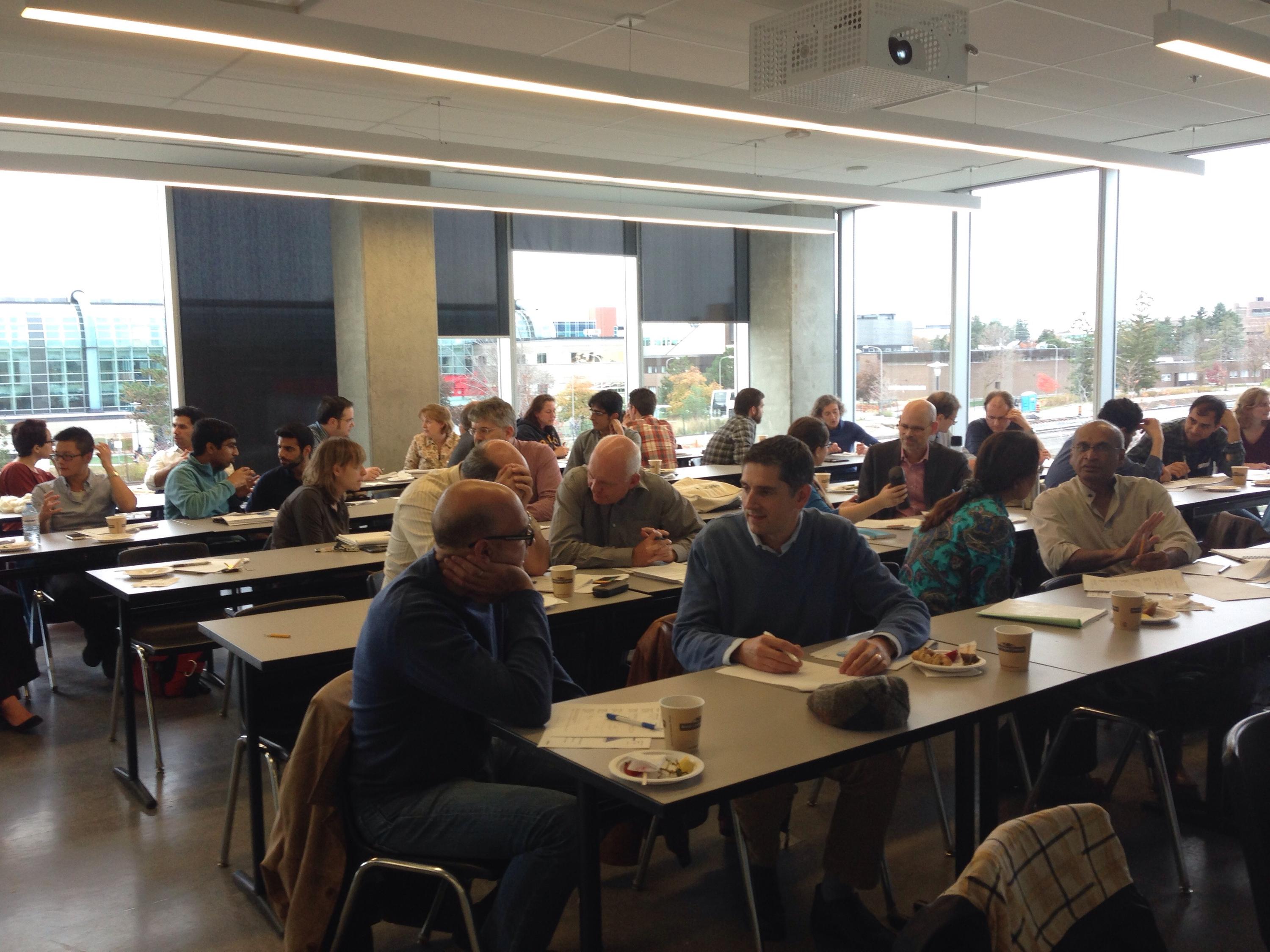Event
posting
Workshop
handout
(PDF)
Workshop
presentation
(PDF)
Printable
version
of
this
post
(PDF)
Overview
This workshop was developed and delivered by Julie Timmermans, Instructional Developer with the Centre for Teaching Excellence, and Gordon Stubley, Associate Dean, Engineering Teaching. The session was designed to help participants:
- Recognize that course content can be selected and organized to focus on learning rather than teaching;
- Recognize that certain concepts within a course/program are more important than others and worthy of greater attention;
- Identify a transformational concept in your course or program;
- And gain awareness of the research on "Threshold Concepts" and "Decoding the Disciplines" which can inform this work.


Gordon began the session by addressing the defining characteristics of a threshold concept:
- Transformative
- Irreversible
- Integrative
- Potentially troublesome
- Bounded
- Discursive, reconstitutive, liminal
He gave an example of a threshold bottleneck from his own fluid dynamics course: pressure – flow. Participants were then asked to independently complete a worksheet activity (PDF) to identify a possible threshold concept in their own courses.
Julie explained the seven-step Decoding the Disciplines cycle, drawing connections between it and the course design process. She discussed an interview process wherein an expert could be guided to make explicit the knowledge required to grasp expert-level concepts.

With the assistance of Samar Mohammad, the interview method was modelled. Participants then broke into pairs and practised the interview method with a partner.



Resources
Male, S. (2012). Engineering thresholds: An approach to curriculum renewal: Integrated Engineering Foundation Threshold Concept Inventory 2012. An outcome report of the ALTC project "Engineering thresholds: an approach to curriculum development"
Meyer, J. H. F. (2012). 'Variation in student learning' as a threshold concept. Journal of Faculty Development, 26, 8-13.
Meyer, J. H. F., & Land, R. (2005). Threshold concepts and troublesome knowledge (2): Epistemological considerations and a conceptual framework for teaching and learning 49, 373-388. doi: 10.1007/s10734-004-6779-5
Meyer, J. H. F. & Land, R. (2003). Threshold concepts and troublesome knowledge: Linkages to ways of thinking and practising within the disciplines. In C. Ruse (Ed.), Improving student learning: Improving student learning theory and practice – 10 years on (pp. 412-424). Oxford, UK: Oxford Centre for Staff and Learning Development.
Middendorf, J., & Pace, D. (Eds.). (2004). Decoding the Disciplines: A model for helping students learn disciplinary ways of thinking. New Directions for Teaching and Learning, 98. San Francisco: Jossey Bass. doi: 10.1002/tl.142
Timmermans, J. (2010). Changing our minds: The developmental potential of threshold concepts (PDF). In J. H. F. Meyer, R. Land., & C. Baillie (Eds.), Threshold concepts and transformational learning (pp. 3-19). Rotterdam, the Netherlands: Sense.
Wilcox, S., & Léger, A. (2013). Crossing thresholds: Identifying conceptual transitions in postsecondary education (PDF). The Canadian Journal for the Scholarship of Teaching and Learning, 4. doi: http://doi.org/10.5206/cjsotl-rcacea.2013.2.7
Other related links
- Decoding the disciplines: Interview technique (PDF)
- Disciplinary Threshold Concepts Project: Physics and Law
- Pace and Shopkow: Decoding the Disciplines Presentation from OND 2013 (docx)